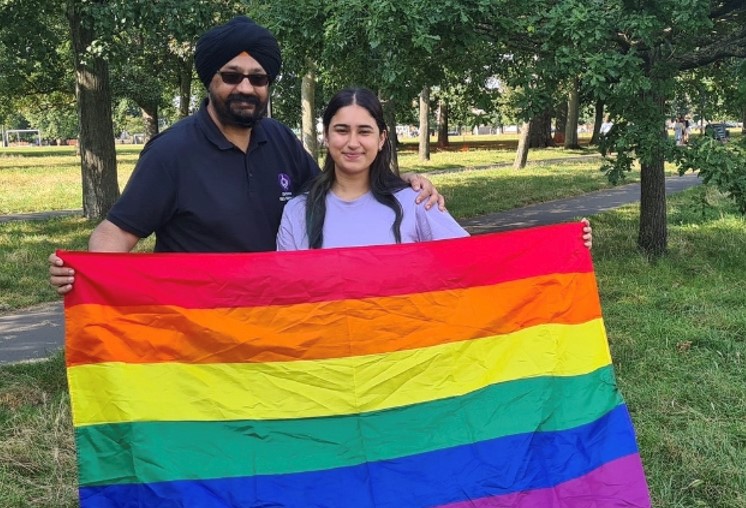
When I was growing up, Section 28 was in force in England, which prohibited any public authorities (including teachers) from talking about LGBT+ issues. As a young person, I wasn’t even aware of bisexuality. I thought my occasional attraction to a man was a ‘phase’ and definitely not the norm within the society or community within which I lived. I knew I couldn’t be gay because I was attracted to women too. When factored into the equation, my Sikh faith, Indian family roots, and visible faith identity (as a turban wearer) – there was definitely no way I could be gay or bisexual! Sikh, nor Indian LGBT+ people don’t exist or so I thought.
Although the B is contained within the acronym LGBT, it is often ignored or lost within the broader term. For those who identify as bisexual, if they are in a same sex relationship, it is assumed they are gay or lesbian and for those in relationships with someone of the opposite sex, it is assumed they are straight. But it is worthwhile remembering that being bisexual generally refers to someone who is attracted to men and women, so can apply to anyone in straight or same-sex relationships. But just as all straight people are not attracted to all people of the opposite gender and lesbian/gay people are not attracted to all people of the same gender, bisexual people are not attracted to everyone. This is a common misconception about bisexuality.
As a bisexual person, it is frustrating to be told by others that ‘I cannot make my mind up’ or ‘I am not a trustworthy person in a relationship’, or ‘I am playing it safe’……! Attraction is an individual characteristic for each person and sexual attraction is fluid and can change during a person’s lifetime. Being bisexual also doesn’t make me more or less promiscuous than other people.
I have two children and I have also been open with them about my bisexuality. They are allies and have always been indifferent to it – to them, ‘love is love’ and they just want their dad to be happy.
Being a role model for DRM has been an amazing part of my life and seeing the positive impact that DRM make with their workshops in schools is awesome. Many people do not get to meet someone from the LGBT community, although there is certainly more exposure through media and education, so going into classrooms and connecting with young people is powerful. It also helps dispel any myths or stereotypes they may have learnt. There are so many inspiring quotes I have come across from the students I have worked with but one of my favourites is ‘difference is a strength and makes life more interesting – wouldn’t life be boring if we were all the same?’
Watch Pritpal's Role Model Stories episode here: